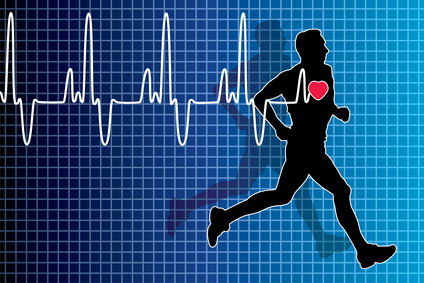
- Exercising is key to longevity and part of what we like to call “healthy living”.
- Combining a good diet made of organic foods to regular exercise are key to reaching optimal health.
- According to Medical News Today, “The heart rate is one of our vital signs – it is the number of times a minute that our heart contracts or beats.”
- The rate of our heart contractions is equal to our pulse, which is how many times per minute our arteries expand due to the increase of blood pressure caused by the beating of our heart.
- It’s very important to know your target heart rate so you are not overexerting yourself. “We don’t want people to over-exercise, and the other extreme is not getting enough exercise,” says Gerald Fletcher, M.D., a cardiologist and professor in the Mayo Clinic College of Medicine in Jacksonville, Fla.
- Your resting heart rate is your heartbeat when you are at rest and not engaging in physical activity or exercise.
- According to Mayo Clinic, “a normal resting heart rate for adults ranges from 60 to 100 beats a minute.” A lower heart rate usually indicates more efficient function of the heart and a higher level of physical fitness.
- For example, an athlete who is in great shape may have a resting heart rate of 40 to 60 beats per minute.
- The easiest way to check your heart rate is to check your pulse. Simply place your index finger and middle finger on your neck next to your windpipe.
- You can also check your pulse on your wrist by placing the same fingers between the bone and tendon of the radial artery, which is located on the thumb side of your wrist.
- Count the number of beats you feel in your pulse for 15 seconds, and then multiply this number by four to find your beats per minute.
- Although there is a wide range of normal heart rates, an unusually high or low heart rate may be a symptom of an underlying condition. Please consult your health practitioner or qualified expert if your heart rate is consistently above 100 bpm or below 60 bpm, especially if it includes symptoms such as fainting, dizziness, or shortness of breath.
- Normal resting heart rates:
- Newborn baby: 120 to 160 bpm
- Baby (1 to 12 months): 80 to 140 bpm
- Baby/toddler (1 to 2 years): 80 to 130 bpm
- Young child (2 to 6 years): 75 to 120 bpm
- Child (7 to 12 years): 75 to 110 bpm
- Adult (18+ years): 60 to 100 bpm
- Adult athlete: 40 to 60 bpm



















